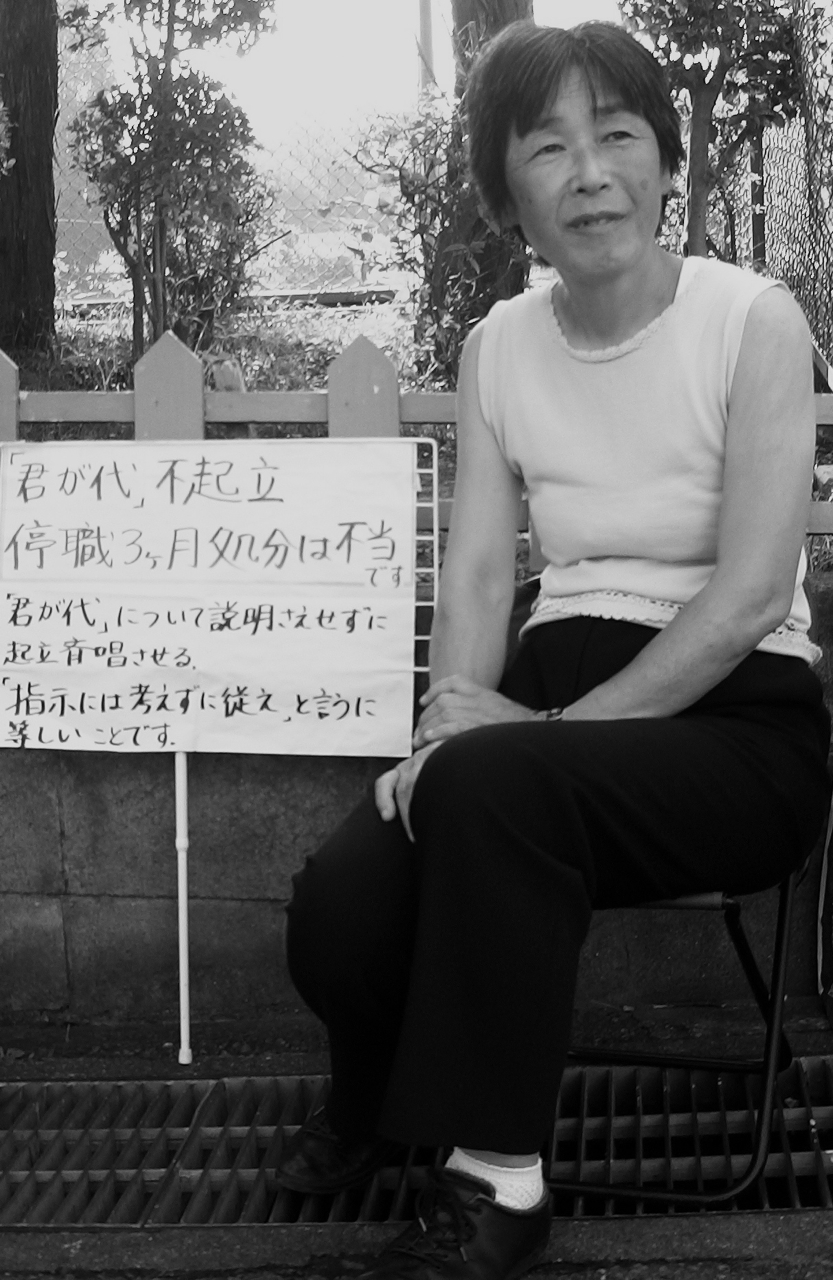Committee for Stopping the Firing of Nezu, Kawarai and Other Teachers
 |
| Kimiko Nezu outside her school - photo Mark Gregory - June 2006 |
Kimiko Nezu, a school teacher in Tokyo, is one of the many teachers in Japan who resist against the remilitarization pressure from the government by not standing for Kimigayo, the national anthem during school ceremonies.
Kimigayo and the national flag Hinomaru are regarded by many people in Asia as symbols of Japan's wartime imperialism and militarism. Kimigayo, often translated as "May your reign last forever," is a song that praises the emperor, under whose name millions of lives were vainly lost in the past war. These teachers in Japan, by not standing for Kimigayo, express their determination never again to send children to war.
Many of such teachers, outstandingly those in Tokyo where nationalist Shintaro Ishihara serves as Governor, are undergoing punitive measures such as warning, pay cut and suspension from work. The last punishment on Nezu was a 6-month suspension from April to September 2007. The Tokyo Metropolitan Board of Education had warned her that it would be her last suspension, implying that she would lose her job if she refused to stand for Kimigayo again.
Have you ever heard of anything like that, like teachers being fired simply for not standing, happening in a democratic country like Japan? This should not happen. This is a grave infringement of Article 19 of Japan's Constitution, which guarantees freedom of thought and conscience.
In September 2006, Tokyo District Court ruled that the coercion of Kimigayo and Hinomaru at schools was unconstitutional. The Tokyo Metropolitan Government appealed, and to date continues to impose punishments on teachers.
Kimiko Nezu took action even when she was under suspension. She went to the gate of the school that she was assigned to, and greeted to the students and teachers who went through the gate, before school and after school. Rain or shine, she would go to the school every day, and talked to the people who came to her wondering why she was standing there. She called this 'going to work under suspension,' and kept a journal of daily events in which she recorded her lively conversation with those who supported or opposed her. This journal was made public on the Internet, and touched the hearts of many readers.
A group of citizens who are committed to support Kimiko Nezu and the other teachers under punishment, decided to translate this journal into English so that more people throughout the world be able to read it, and be educated on the case of serious human rights violation in Japan. We believe this issue deserves international attention, and international action.
If you would like to contact us for further information and what you can do to help the Japanese teachers, please email yadamascussteel@yahoo.co.jp
Thank you very much for your interest
Notes
Visit the blog of Kimiko Nezu's diary translated into English at